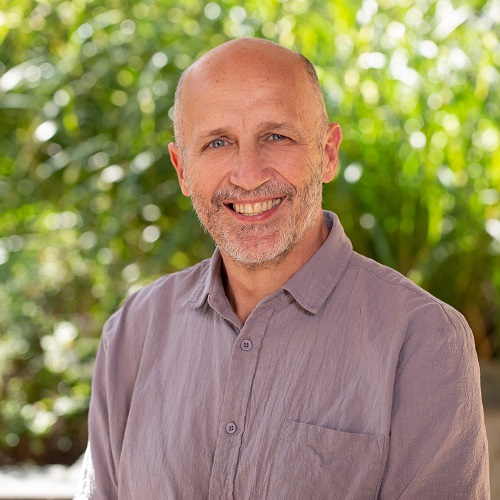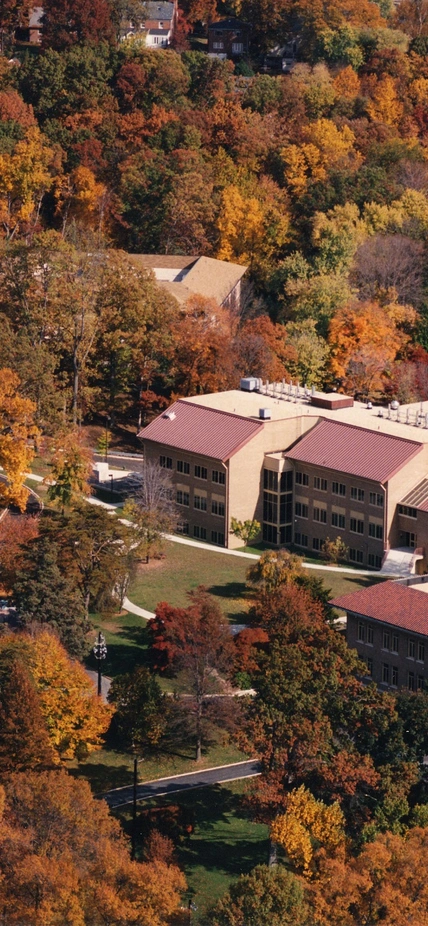Washington, DC— Earth and Planets Laboratory Director Richard Carlson, who has served Carnegie with distinction for more than 40 years and whose work has transformed our understanding of the Earth and our Solar System, will step down as Director and retire as an emeritus staff member from Carnegie effective December 31, 2021. He will be succeeded by the current Deputy Director, Michael Walter, who is an experimental petrologist and expert on the origin and evolution of planetary interiors.
“Rick will leave behind a tremendous legacy of scientific leadership,” said Carnegie President Eric D. Isaacs. “Throughout his illustrious career, Rick has been a model Carnegie scientist. He has demonstrated the agility to be a leader in not one, but multiple research directions. He has also been a remarkable mentor to generations of scientists.”
He was named Director of the Department of Terrestrial Magnetism in 2014. In 2019, he oversaw the joining of the historic Department of Terrestrial Magnetism and Geophysical Laboratory to form the Earth and Planets Laboratory. Under his guidance, the division has hired its first three staff scientists, as well as two cohorts of incoming postdocs. Carlson’s steady and capable leadership has been further amplified throughout the pandemic, enabling the division to carry out a robust portfolio of on-site research while maintaining a high level of safety across campus.
Carlson also leaves a legacy of scientific excellence in his research on the formation of the Solar System and the geologic history of Earth. He joined Carnegie as a postdoctoral fellow in 1980 and was named a Staff Scientist the following year. Prior to his arrival at the Institution, he earned a bachelor’s degree in chemistry from the University of California San Diego and a Ph.D. in Earth Science from the University’s Scripps Institution of Oceanography.
He is widely recognized for his use of isotope geochemistry to understand the origin and evolution of the early Solar System, the Moon, and the Earth’s continental crust. He is a member of the U.S. National Academy of Sciences and a fellow of the American Association for the Advancement of Science, the American Academy of Arts & Sciences, the American Geophysical Union, and the Geochemical Society.
Many of these and other organizations have honored him with some of their top recognitions, including the Geochemical Society’s Victor Moritz Goldschmidt Award, the Geological Society of America’s Arthur L. Day Medal, and the American Geophysical Union’s Normal L. Bowen Award.
“I am grateful for Rick’s leadership and the countless hours he has devoted to ensuring the success of EPL’s first two years of existence,” Isaacs added. “The depth of his knowledge about the work being done throughout the division is apparent in every conversation, regardless of whether he is talking to his fellow members of institutional leadership, scientific peers, friends of the institution, or members of the public.”
 Walter will succeed Carlson starting January 1, 2022. He was named GL Director in 2017 and began his tenure the following year. In 2019 he was named the Deputy Director of EPL and has worked closely with Carlson and EPL staff to help ensure the successful integration of the two historic departments and to develop a unified pathway to excellence for the newly created division.
Walter will succeed Carlson starting January 1, 2022. He was named GL Director in 2017 and began his tenure the following year. In 2019 he was named the Deputy Director of EPL and has worked closely with Carlson and EPL staff to help ensure the successful integration of the two historic departments and to develop a unified pathway to excellence for the newly created division.
“Mike has been an invaluable resource regarding the institution’s scientific computing infrastructure and needs,” Isaacs said. “I know that as Director, he will continue to have an eye to how we can remain at the cutting-edge across our scientific programs in EPL.”
Walter began his career at Carnegie as a postdoc between 1993 and 1994. He earned his Ph.D. in geology from the University of Texas Dallas and a bachelor’s degree in the same from the University of Nebraska Omaha. Between 1995 and 2003, Walter was a Professor at the Institute for Study of the Earth’s Interior in Misasa Japan. He subsequently moved to a faculty position in the Earth Sciences Department at the University of Bristol from 2004 through 2018, serving a five-year term as Head of the School before being recruited back to Carnegie as GL Director.
Walter is an experimental petrologist who specializes in understanding how the Earth’s interior melted and differentiated into the mantle and the core during a period early in its history--shortly after our planet accreted from the cloud of gas and dust surrounding our young Sun. He also investigates the chemistry, structure, and properties of melts and minerals under the extreme pressures and temperatures found deep in Earth’s interior, with a focus on understanding mantle processes and material recycling from impurities preserved inside diamonds that originated deep in the mantle. He is a fellow of the American Geophysical Union and the Mineralogical Society of America.

